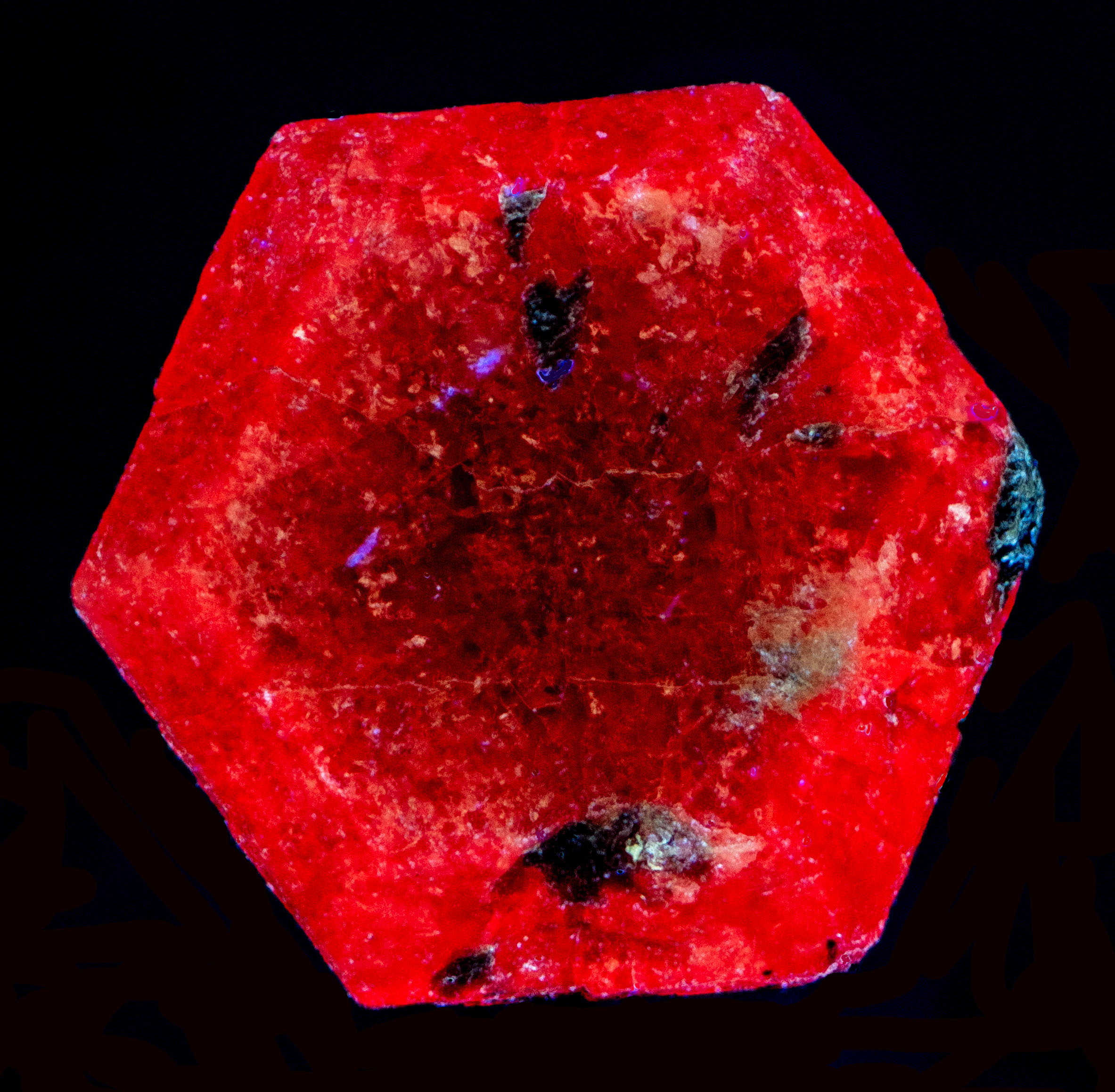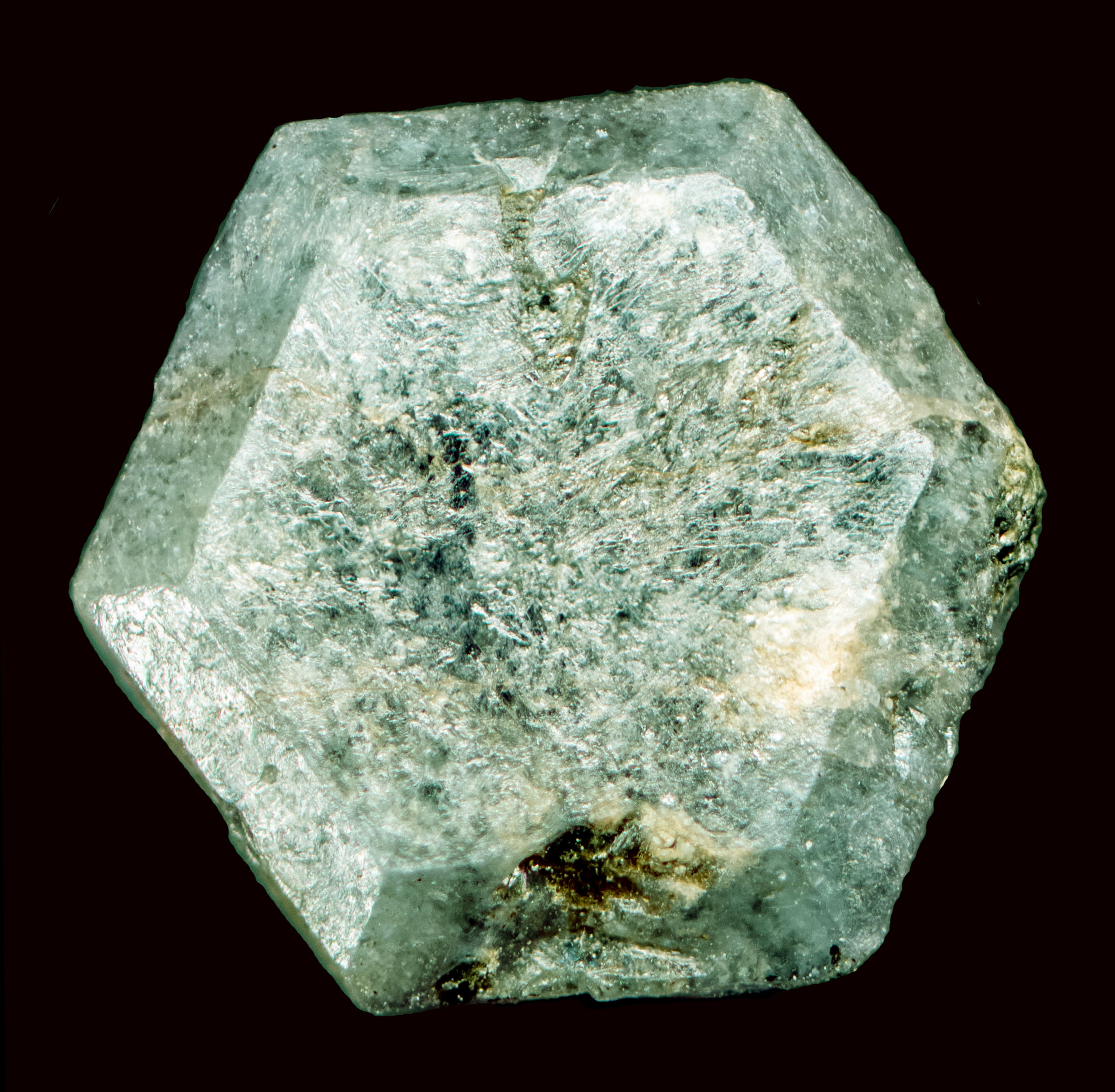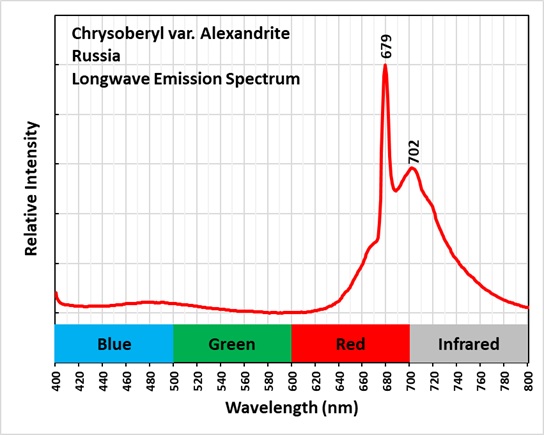Alexandrite from Russia
Contributed by: Michael Crawford
Date: Jul 28th, 2025
Locality: Izumrudnye Kopi area, Malyshevo, Sverdlovsk Oblast, Russia (See on Mindat)
Size: 12 x 12 mm
Description:
A small crystal of alexandrite (BeAl2O4) from the type locality of Izumrudnye Kopi area, Malyshevo, Sverdlovsk Oblast, Russia. The crystal is a nice example of cyclic twinning with beveled edges. Alexandrite is a chromium bearing variety of chrysoberyl that is green in sunlight and changes to purple under incandescent light. Broad spectrum sunlight and some LED’s that are rich in blue and green wavelengths are preferentially reflected by alexandrite making it appear green. Incandescent lights are richer in red wavelengths and alexandrite reflects more of the red wavelengths, giving it a purple color. This type of color change is observed in other minerals (i.e. garnet, fluorite, corundum, etc). This property is referred to as the “alexandrite effect”.
The chromium in alexandrite activates red fluorescence under longwave UV light. Chromium replaces aluminum. The emission spectrum has a sharp peak at 679 nm and a slightly wider peak at 702 nm. There are also inflection points around 670 nm and 715 nm.
Summary of luminescence responses:
Alexandrite (Mindat) (RRUFF)
- Fluorescence under Longwave (365nm LED) UV light: Red



